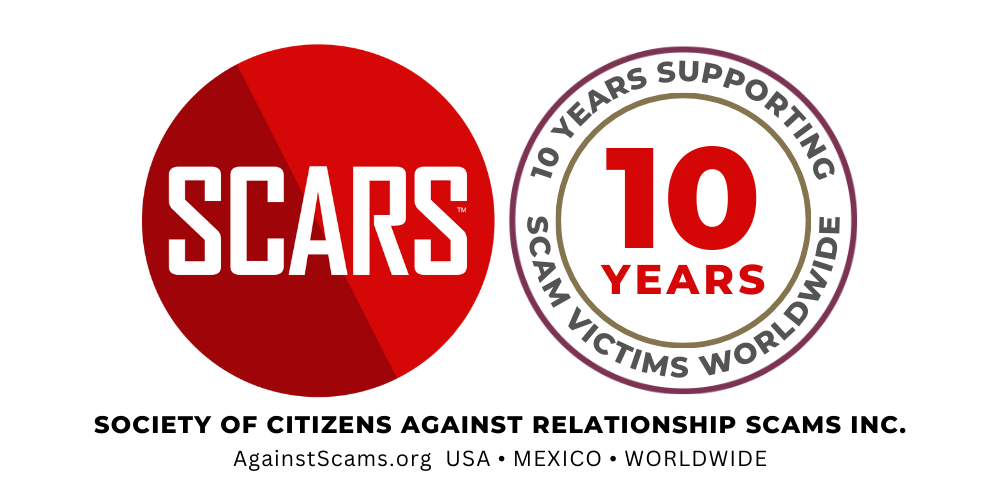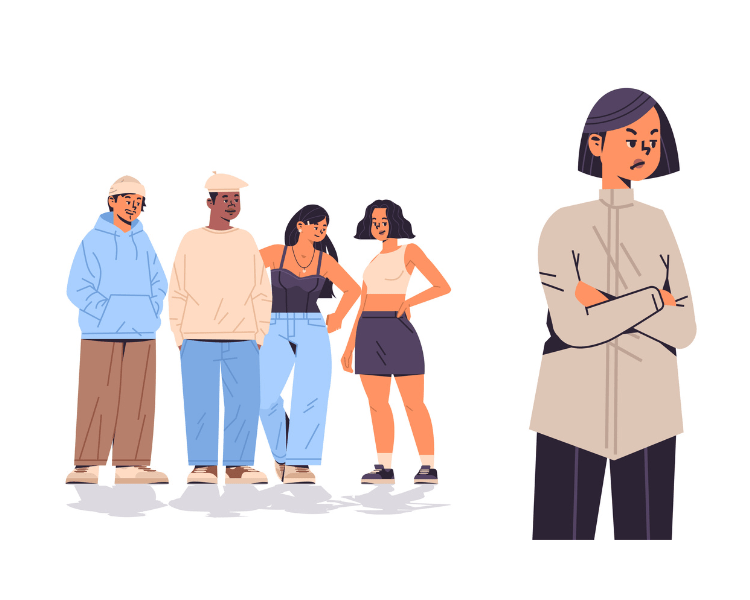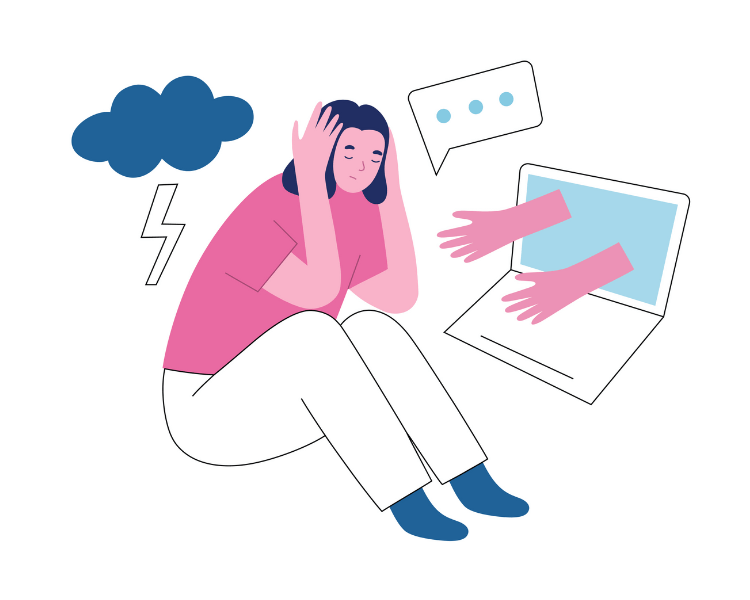
You Are Being Blackmailed!
What Happens When Sextortion Goes Wrong
When Scammers Post Those Photos
Scammers May Follow Through
The criminals want you to be scared and freak out, but hold it together!
You can make it through this. We know, we have helped loads before you!
The secret to surviving this is to have a good story to help you survive this.
Need To Talk?
Call NOW!
988
Phone Help in the U.S. & Canada
We Have Discussed Sextortion Before – But Here Is How To Deal With The Photos After They Are Posted
Just Remember You Are Not Alone
- This is happening to literally millions of others just like you! It’s you right now, but it will be someone else a minute from now. This is how it works.
- Millions of victims means that most of them are getting through this just fine. It is a hassle, it is painful, but they survived it and so can you.
But what if you can’t make it through this?
It’s ok to be fearful and traumatized – that is actually what the scammers are counting on. It is ok to be hurt and angry and confused. They hope that the more betrayed and panicked you are the more easily they can get money from you. This just means you need some help.
What To Do if You’re the Target of Sextortion/Revenge Porn!
Did a criminal or someone else share an intimate image of you without your permission? Or was a nude picture taken without your consent, or maybe an image you shared with someone was shared further than you’d intended? Such as in a sextortion scam? This is a crime!
If so, you’re not alone. Millions have been scammed (or attempted) – people are affected by so-called sextortion or revenge porn or non-consensual pornography every year. If that’s happened to you or someone you know, here’s information to help you decide what to do.
Difference between Sextortion and Revenge Porn
1. Revenge Porn
Revenge porn refers to the non-consensual sharing or distribution of sexually explicit images or videos of a person, typically by a former partner or acquaintance, with the intent to cause harm, embarrassment, or distress. It often involves the malicious posting of intimate material online without the individual’s consent, often as a form of retaliation, coercion, or blackmail. Revenge porn can have devastating consequences for victims, leading to emotional trauma, damage to personal and professional reputations, and even legal implications. It is a serious crime, a violation of privacy and consent, and efforts are being made globally to combat its prevalence and provide support for victims. But if you have already experienced this there are steps you can take.
2. Sextortion
Sextortion is a form of online crime where someone threatens to distribute sexually explicit images or videos of another person unless they comply with demands, usually monetary or sexual in nature. Typically, the perpetrator obtains these materials through coercion, manipulation, or deceit, such as posing as a romantic interest or befriending the victim online. Once they have the compromising material, they use it as leverage to extort from the victim, demanding money, more explicit images, or other favors under the threat of exposing the material to friends, family, or the public. Sextortion can have severe emotional and psychological effects on victims, leading to feelings of fear, shame, and powerlessness. It is a serious cybercrime that preys on individuals’ vulnerabilities and trust, and it is important for everyone to be aware of the signs and take steps to protect themselves online. But if you have already experienced this there are steps you can take.
Is The Victim Under 18?
Is it illegal for someone to share intimate images under the age of 18!
Under the criminal codes of every state in the U.S. or province in Canada, or most other countries, if the photos are of someone under the age of 18, it’s considered child pornography.
See our guides for Teen Boys and Teen Girls.
Steps To Take If You’re the Target of Sextortion or Revenge Porn
The first thing to remember is that you can survive this. It may be painful, but don’t let the bastards win!
If the scammers or other person has released the photos or video – see our Surviving Sextortion Guide
The Legal Process
Follow the steps in the Cyber Civil Rights Initiative’s Online Removal Guide. To get your image taken down, you’ll need to report it to Facebook, Twitter, Instagram, Snapchat, Reddit, Tumblr, Google, Yahoo, Bing, or any other platform it’s on. Before you do, read the guide to find out what to expect and how to document the post, as well as how to report it.
There are laws against sextortion and revenge porn where you live. There are laws against sextortion and revenge porn throughout the United States, Canada, Australia, New Zealand, the UK, and Europe, plus in many other countries. Talk with local law enforcement. If you do, be sure to tell law enforcement if your situation might involve online financial fraud, domestic violence, cyberstalking, or child pornography.
Consider talking with an attorney. There are laws that might be able to help you get your images taken down (see our guide to using the Digital Millenium Copyright Act – it is easy and you do not need an attorney). One of the more powerful ones is copyright – if you own the photos, you can have them removed by claiming copyright infringement. Social media companies respond very well to DMCA takedown notices.
Know what you’re getting if you hire a takedown service. Unfortunately, there are services that take advantage of victims for a few – they may be real businesses – make sure you verify. Find out what they promise to do to take your image down, and whether you can do that yourself for free. Find out how much they’ll charge, and whether it’s a one-time fee or a recurring charge — and for how long you’ll need to pay.
In Canada
Can I be prosecuted for distributing someone’s private images even if they are over the age of 18? Yes. If you or someone you know has or is thinking about distributing someone’s private images without their consent, it’s considered a publication, etc., of an intimate image without consent under section 162 and you can be prosecuted for it. Source: http://laws-lois.justice.gc.ca/eng/acts/C-46/section-162.1.html
If you or someone you know has been affected by Online Violence or your private images were distributed or shared without your consent, understand that it is a crime!
Can I report someone pretending to be me or someone who creates fake accounts of me by using my private photos? Yes. Under the Criminal code of Canada section 403, it’s considered identity fraud, and those who commit this offense can be prosecuted. If you found fake accounts or know there are profiles pretending to be you, understand that it is a crime and you do have the option of reporting it.
How do I report it to the police? You can contact your local police station, or the RCMP at their non-emergency phone lines and make a report of the intimate image distribution. It will be helpful as you move forward with a report, to document what happened and collect any evidence. Take screenshots of posts, messages, texts, and other conversations of harassment, threats, and images.
If you or the survivor is under 18 you can make also report here: https://www.cybertip.ca/app/en/report-types.
In The UK
Have you had your intimate images shared online without your consent? You are not alone and there is a dedicated nonprofit organization there to help
Go to: https://revengepornhelpline.org.uk/
Sextortion is a Serious Crime and the Police will take it Seriously.
Sextortion Menu
- Sextortion Basics
- For Teen Guys – Sextortion Scams – What Are They? How To Survive Them?
- For Teen Girls – Sextortion Scams – What Are They? How To Survive Them?
- Surviving Sextortion / Sexual Photo Blackmail
- When Sextortion Goes Wrong – When Scammers Post Those Photos
- Helping Someone Survive Sextortion/Blackmail
- Sextortion Support Resources Worldwide
- Getting Photos & Video Removed Using Copyright
Takedown Services
- If you’re under 18, you can use takeitdown.ncmec.org – a free online tool that prevents your image or video from being shared on platforms such as Facebook, Instagram, TikTok, Yubo, OnlyFans, and Pornhub.
- If you’re 18 or older, you can use StopNCII.org – a free online tool that prevents your image or video from being shared on platforms such as Facebook, Instagram, TikTok, Bumble, OnlyFans, and Reddit.
More Sextortion Resources
- USA – Sextortion: What Kids and Caregivers Need to Know — FBI
- USA – Financially Motivated Sextortion — FBI
- AUSTRALIA – Dealing with sexual extortion | Australia eSafety Commissioner
- CANADA – Cybertip.ca
- Thorn – Stop Sextortion – Get Help
- Get Help Now – Cyber Civil Rights Initiative
- USA – National Center For Missing & Exploited Children
- Take It Down Tool
• Tool: takeitdown.ncmec.org
• PSA: youtube.com/watch?v=pAaXbBzVdJE - What to do:
• missingkids.org/theissues/sextortion - Request Victim/Family Support
• email: gethelp@ncmec.org - Report to the CyberTipline and Survivor Services will reach out with additional resources: cybertipline.org
- Take It Down Tool
- USA/CANADA – National Crisis Hotline
- Call 988 or Text 4HOPE to 741741
- https://www.crisistextline.org/ for access to a trained counselor
- AUSTRALIA – 24/7 helplines – free and confidential:
- If you’re 25 or younger, you can call or chat online with Kids HelplineExternal link (1800 55 1800).
- If you’re 18 or older, you can call, text or chat with LifelineExternal link (13 11 14).
- USA – FBI “How Can We Help You”: https://www.fbi.gov/how-we-can-helpyou/safety-resources/scams-andsafety/common-scams-and-crimes/sextortion
- ICAC Task Force Contacts: https://icactaskforce.org/TaskForceContacts








